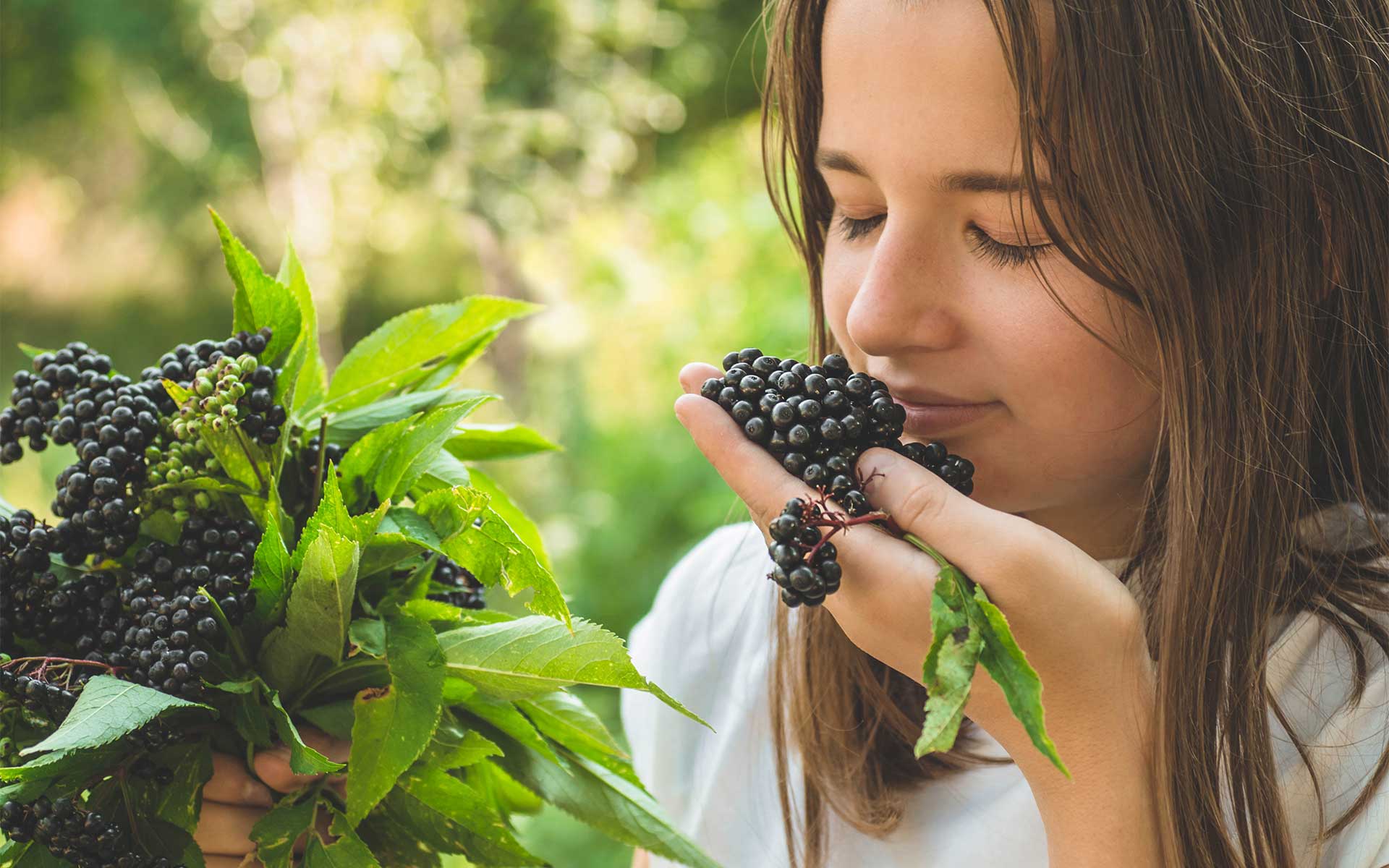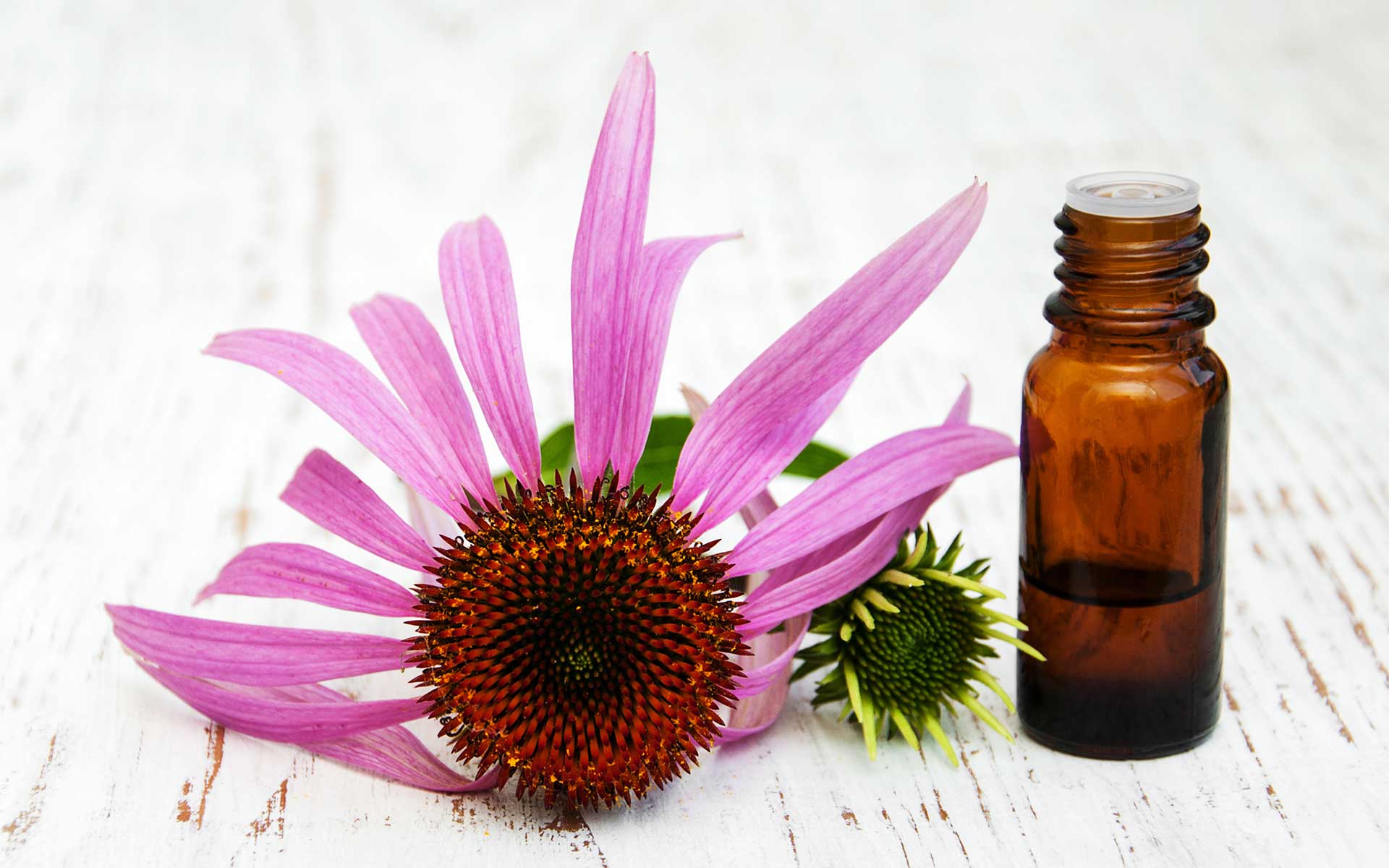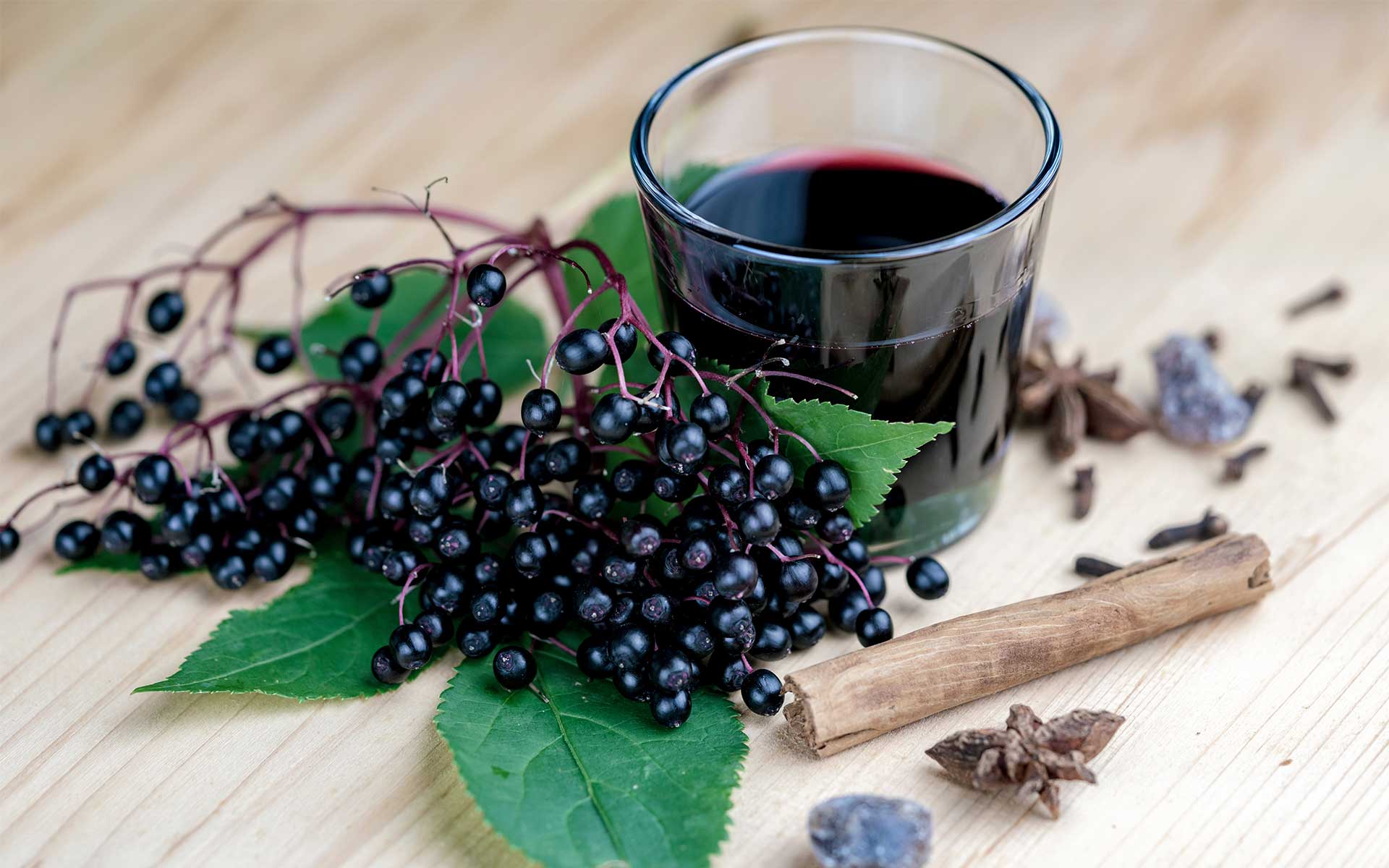Elderberry is one of the most commonly used medicinal plants in the world, and the natural health benefits of elderberries have been touted for centuries. In Eastern medicine, the elderberry has long been believed to be a potent herbal remedy for everything from poor circulation to muscle and joint pain. Also, Indigenous people have traditionally used it to treat fever and rheumatism, while the ancient Egyptians used it to improve their complexions and heal burns.
Today, the uses for elderberries (in supplement form) are numerous and include strengthening health and immune systems, as well as helping the body fight ailments and illnesses. This informative blog post explores the many benefits of elderberry supplements and answers some common questions about this ancient berry - particularly, does elderberry work? Also, what does elderberry do for the immune system?
Finally, we will also explore some historical elderberry Sambucus benefits, examine which herbs combine well with elderberry, and much more about the uses of elderberry.
What Is Elderberry?
What is an elderberry, you ask? They are berries that grow on Sambucus trees, which is a flowering plant belonging to the Adoxaceae family. There are several different varieties of the Sambucus tree, the most common being Sambucus nigra, also known as the European elderberry or black elder. However, elderberry should not be confused with American Elder, Elderflower, or Dwarf Elder.
The Sambucus nigra grows up to 30 feet (9 meters) tall, and it has deciduous leaves, white flowers (elderflowers), and berries that turn from green to red to black when ripe. The berries are quite tart and need to be cooked to be eaten. The flowers have a delicate muscat aroma and can be eaten raw or cooked.
We will discuss the health benefits of elderberry in more detail throughout this post. However, the bottom line is that they contain plenty of vitamins and antioxidants, which can positively influence and strengthen the immune system.
Where Do Elderberries Grow?


There are over 40 types of elderberry trees; however, Sambucus nigra (a.k.a. European elderberry or black elderberry) is the most common. Some species are shrubs that can reach 5 to 33 feet (1.5 to 10 meters) in height. Other types include herbaceous plants of the honeysuckle family. Such plants grow fast, are frost-resistant, and are shade-tolerant, which makes them a gardening favorite.
In nature, Sambucus nigra can be found in forests and thickets. Usually, these are temperate, subtropical, and tropical regions. As such, in the wild, the elderberry plant grows almost everywhere in Europe, Russia (primarily in Siberia and the Far East), the Caucasus region, and northern African countries, among other places.
Elderberry Nutrition
What are elderberries good for, nutritionally speaking? They are a great source of vitamins A and C and various other minerals and nutrients, which are beneficial for health. A cup of elderberries has 106 calories and contains:
- • Vitamin C (52 mg)
- • Vitamin A (870 mg)
- • Dietary fiber (10.2 g)
- • Carbohydrate (26.68 g)
- • Protein (1 g)
- • Calcium (55 mg)
- • Iron (2.3 mg)
- • Potassium (406 mg)
- • Folate (9 mg)
How long does it take elderberry to work? In most studies, the health benefits of elderberry supplements, like a syrup, appear to relieve flu symptoms and reduce the length of time the flu lasts when taken by mouth within 48 hours of the first symptoms. Taking elderberry lozenges within 24 hours of the first symptoms also seems to reduce flu symptoms. Overall, relief seems to occur within 2 to 4 days of treatment for most people.
Can You Take Elderberry Daily & How Much?
Can you take elderberries daily? Yes, it’s safe to take elderberries in supplement form every day. How much elderberry per day? You should limit daily intake to the recommended dose, which is 28/34 g (women/men) per day. As with any supplements, it's important to consult your doctor or pharmacist before taking or beginning a regular regimen.
Also, elderberries should be cooked before consumption. Never eat or drink any product made from raw elderberry fruit, flowers, or leaves. They contain a chemical that produces cyanide, which can cause nausea and vomiting and more serious effects with high doses. Furthermore, people who have an allergy to elder pollen might react to elderberry supplements.
Can You Develop Elderberry Allergy?


Yes, studies have shown that the elderberry plant S. nigra can harbor “allergenic potency”1. Basically, elderberries can sometimes induce allergic reactions, which usually occur in people who are also allergic to any plants that belong to the honeysuckle family which is scientifically referred to as Caprifoliaceae.
The symptoms of an allergic reaction include skin rash, difficulty breathing (dyspnea), and skin irritation. When consumed in excess, elderberry juice can also cause adverse effects such as diarrhea, weakness, abdominal cramps, and vomiting.
Medical History of Elderberries
What are the benefits of elderberry? History demonstrates a long, rich history of use for medicinal benefits in numerous cultures. Hippocrates, the ancient Greek “father of medicine,” was known to use elderberries for many purposes. In fact, the Elder tree was so popular for its medicinal virtues that it was historically called “the medicine chest of country people.”
John Evelyn, a famous 17th-century English writer, gardener, and diarist, once referenced the elder by saying, “If the medicinal properties of its leaves, bark, and berries were fully known, I cannot tell what our countryman could ail for which he might not fetch a remedy, either for sickness or wounds.” Throughout history, elderberry has been attributed with treating over 70 different maladies from toothaches and fevers to cuts and burns.
Recent studies have linked elderberry supplement benefits with shortening the duration of cold and flu symptoms2 and providing natural antidepressant properties.3
Elderberry Health Benefits
So, is elderberry good for you? Yes, studies have shown numerous health benefits. For example, in one study2, travelers using this herb 10 days before travel until four to five days after arriving overseas experienced a two-day shorter duration of their colds on average and a noticeable reduction in cold symptoms. So, the elderberry has been shown to seriously combat the common cold and the flu by shortening symptoms by an average of four days.
What is elderberry used for? Or, more specifically, what are the benefits of elderberry for other health concerns? Elderberry has also been shown to reduce sinus infection symptoms4 and help lower blood sugar5. It has even been shown potential as an anti-cancer food.6
How Does Elderberry Work?
The elderberry is rich in antioxidant compounds called anthocyanins, which give the berries their dark blue-purple color. Antioxidants can help prevent cellular damage caused by unstable compounds called free radicals, which may cause health problems if they reach harmful levels in your body.
What Is Elderberry Good For?


Why is elderberry good for you? It's an excellent general immune system booster. There are over 400 different viruses that can cause infections, including the common cold, the flu, hepatitis, mononucleosis, and HIV. Many antiviral herbs boost the immune system, which allows the body to attack viral pathogens. This can be even better than attacking specific pathogens, which antiviral drugs are designed to do because pathogens mutate over time and become less susceptible to treatment.
Is Elderberry Good for Colds?
What is black elderberry good for? Common cold symptom relief. In addition to using the elderberry for immune system boosting, studies have shown that taking elderberry in supplement form can help reduce the symptoms and duration of the common cold.
A 2021 systematic review7 screened over 1,000 records and five randomized trials on elderberry for the treatment or prevention of viral respiratory illness. Researchers found that elderberries may reduce the duration and severity of symptoms related to colds and influenza without overstimulating the immune system.
Elderberry and COVID: Does Elderberry Help with COVID Symptoms?
We suspect there were many google searches for “elderberry covid” when the pandemic broke out in 2020. This makes sense, as having a strong immune system is a crucial factor in the fight against coronavirus. In addition, the human body must receive enough vitamins and minerals to withstand the COVID hazard.
Elderberries contain many vitamins, nutrients, and trace substances. When taken together with vitamins C and D, the elderberry extract is believed to aid in preventing COVID-19.
Herbs That Combine Well with Elderberry


An herb that compounds well with elderberries is echinacea, which has both immune-boosting and anti-inflammatory properties. There is considerable evidence8 suggesting that phytochemicals in echinacea have the capacity to reduce virus infections and tumors.
When taken together, these two herbs can provide an even more powerful immune boost than they would on their own, as they work together to fight infection and inflammation.
Best Elderberry Supplement
The best combination, and the one recommended by our Wellness Consultants, is Sambucus Immune syrup by Nature’s Way. This formula includes not only elderberries for immune system health but also echinacea, zinc, vitamin C, and propolis. This elderberry syrup has numerous benefits for strengthening the immune system naturally.
